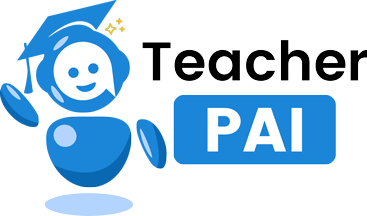"Building Bridges and Bonds"
Peace equips youth and adults with conflict resolution, relationship-building, and restorative practices through six strategic phases. Participants explore their own emotional responses and triggers, interview community leaders, examine institutions and systems of justice, analyze societal influences on conflict, and ultimately design and lead a community-based peace-building project. The program fosters empathy, accountability, communication, and transformation across personal and social spheres.
Goal
To empower participants with the knowledge, tools, and experience to navigate interpersonal and systemic conflict through peaceful, restorative means.
Skill Objectives
Participants will improve the following skills:
- Problem-solving skills – the ability to resolve conflicts and develop restorative solutions in relationships and communities
- Research skills – the ability to examine strategies, practices, and case studies related to conflict resolution and peacebuilding
- Management skills – the ability to guide discussions, mediate disputes, and maintain healthy interpersonal and social environments
Outcomes
- Improved conflict resolution and communication skills
- Stronger peer and adult relationships
- Reduced behavioral incidents and disciplinary actions
- Completion of a peace-centered community action project
Benefits
- Improves Conflict Resolution and Communication
Youth trained in restorative practices develop essential communication and de-escalation skills that reduce the likelihood of future conflict (Schiff, 2021). - Reduces Suspension and Expulsion Rates
Schools that implement peacebuilding and restorative justice programs experience significant reductions in suspension and expulsion, especially among students of color (Anyon et al., 2016). - Builds Empathy and Social Awareness
SEL-infused peace programs cultivate greater empathy, emotional regulation, and perspective-taking in youth (CASEL, 2023). - Enhances School Climate and Belonging
Implementation of restorative circles and community-building practices leads to greater trust, inclusion, and belonging among students and staff (Brown, 2022). - Decreases Recidivism and Improves Reentry
Youth exposed to restorative justice programs during incarceration or disciplinary action report fewer infractions and higher reentry success (Riestenberg, 2012). - Promotes Mental Health and Emotional Safety
Restorative spaces provide opportunities for reflection, healing, and emotional expression that support youth well-being (National Center for Safe Supportive Learning, 2023). - Increases Attendance and Engagement
Schools implementing restorative practices often report improved attendance and engagement among at-risk students (Advancement Project, 2018). - Fosters Long-Term Peacebuilding Skills
Participants in peace education programs retain skills in mediation, listening, and community-building well into adulthood (UNESCO, 2023).
References
- Schiff, M. (2021). Can restorative justice disrupt the school-to-prison pipeline? Retrieved from https://www.tandfonline.com/
doi/full/10.1080/15564886. 2021.1894193 - Anyon, Y., et al. (2016). Restorative interventions and school discipline. Retrieved from https://www.ncbi.nlm.nih.
gov/pmc/articles/PMC6220170/ - Collaborative for Academic, Social, and Emotional Learning (CASEL). (2023). Benefits of SEL. Retrieved from https://casel.org/
fundamentals-of-sel/what-does- the-research-say/ - Brown, M. (2022). Restorative Practices and School Climate: Evidence from Urban Schools. Retrieved from https://journals.sagepub.com/
doi/full/10.1177/ 00420859221092591 - Riestenberg, N. (2012). Circle in the Square: Building Community and Repairing Harm in School. Retrieved from https://www.
livingjusticepress.org/ product/circle-in-the-square- building-community-and- repairing-harm-in-school/ - National Center for Safe Supportive Learning Environments. (2023). Restorative Practices Resources. Retrieved from https://
safesupportivelearning.ed.gov/ topic-research/behavior/ restorative-practices - Advancement Project. (2018). Restorative Practices: Fostering Healthy Relationships & Promoting Positive Discipline in Schools. Retrieved from https://advancementproject.
org/resources/restorative- practices-guide/ - UNESCO. (2023). Learning to Live Together: Peace Education for the 21st Century. Retrieved from https://unesdoc.unesco.
org/ark:/48223/pf0000383862





